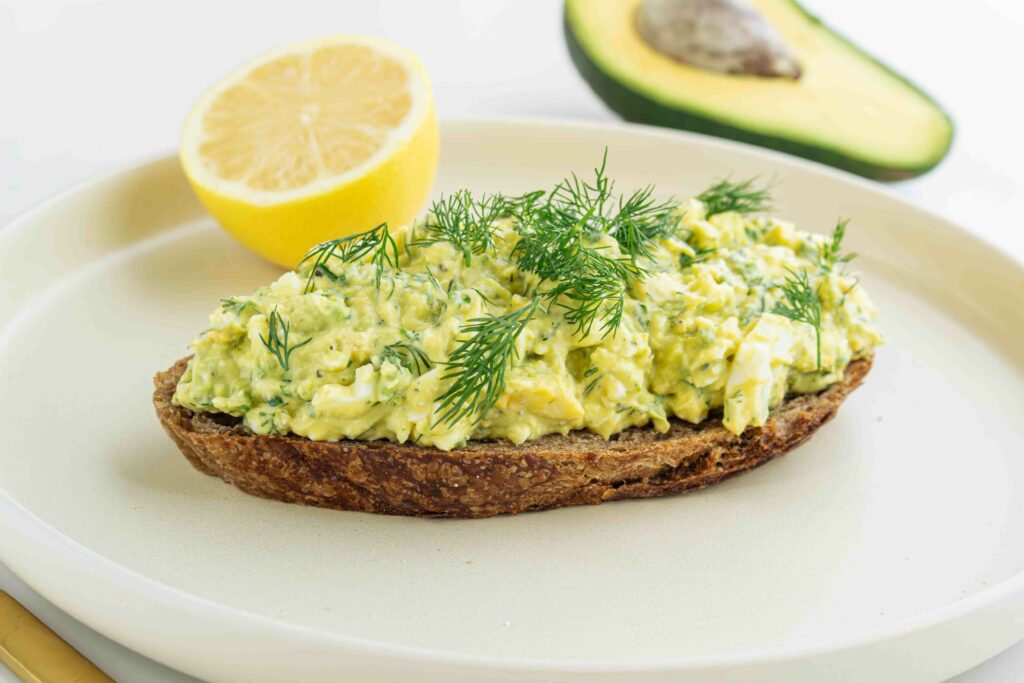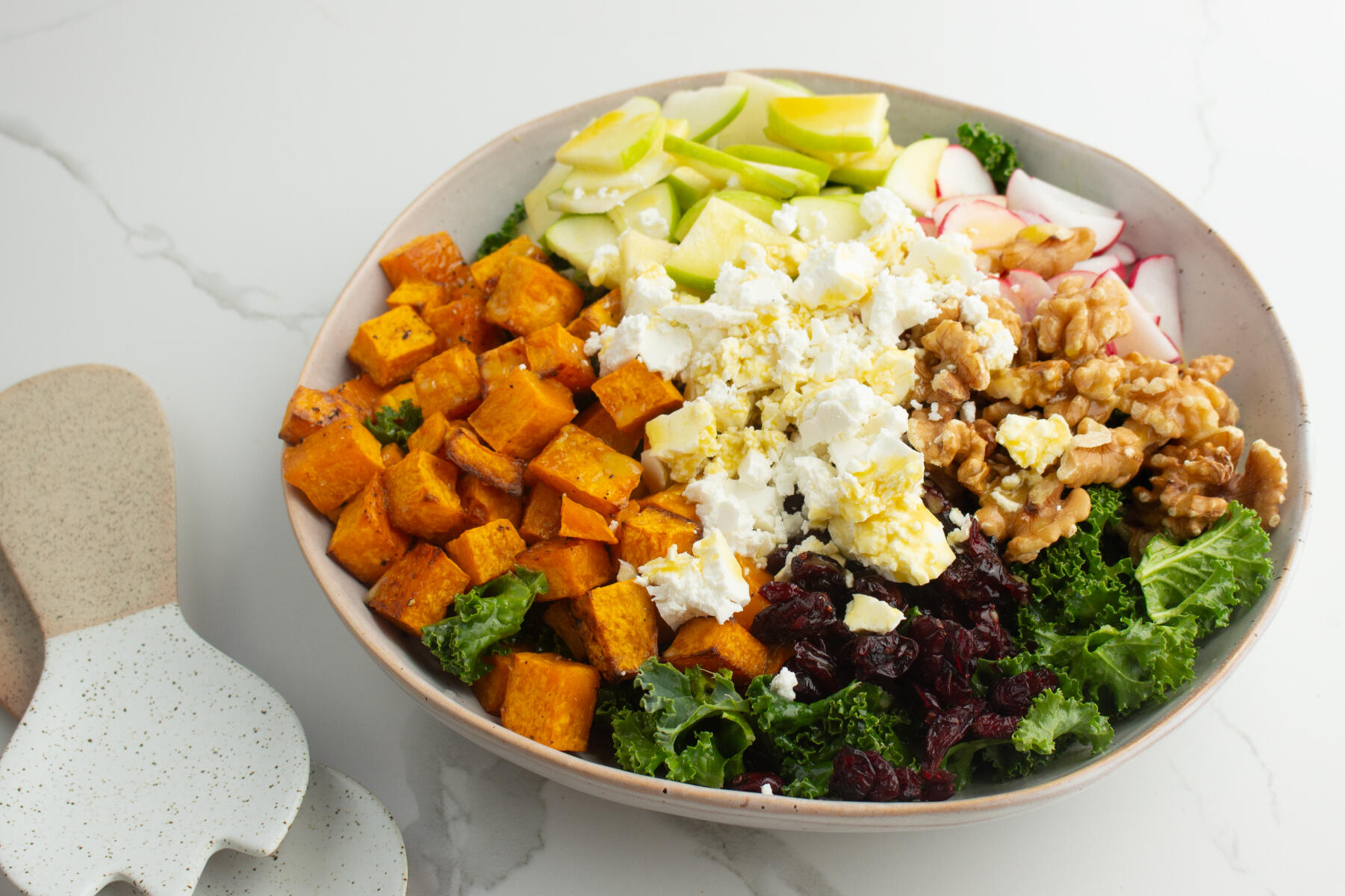Our digestive system is quite remarkable, when you think of everything it does for us on a daily basis. From breaking down and absorbing nutrients, to having an ecosystem of bacteria that produces a large amount of our serotonin, you can see why taking care of your gut is so important. Here are four or my top lifestyle tips to help you give yours the care you deserve.
Include Fermented Foods
I am a fan of fermented foods, which have gained a lot of popularity over the years due to their role in the health of the gastrointestinal system. This is due to the microorganism content of fermented foods which benefits the microbial content of the gut. The gut microbiota is involved in a number of different processes throughout the body, including the gut permeability, digestion, metabolism and immune function. Fermentation processes on certain foods such as diary and sourdough breads are also beneficial as it may increase the tolerance of these products.
Fermented foods to try out in your meals include:
- Kefir
- Yogurt
- Kombucha
- Sauerkraut
- Kimchi
- Miso
- Sourdough bread
Fabulous Fibre
Dietary fibre plays an important role in gut microbiome diversity, blood glucose control and bowel regularity. Prebiotic fibres are fermented by the gut microbiota and also selectively stimulate their growth and activity. This improves the overall diversity of the gut microbiome resulting in a happy gut! Eat a rainbow of wholefoods to ensure you are getting the diverse fibre (and plenty of other wonderful nutrients) that support your digestive system.
Reduce Stress
One of the most important things I believe you can do for your gut is to stress less! The gut microbiome can be affected by more than just diet. It has a bidirectional relationship with the brain, which is known as the Gut-Brain-Axis. Psychological and environmental stress is associated with changes in the gut microbiota which results in alterations to the gut barrier, motility and immune system activation. Conversely, having a healthy gut microbiome can positively influence the nervous system’s response to stress. Having a regular practise of yoga, meditation, mindfulness, journaling, breathwork or spending time in nature are all wonderful ways to reduce stress. I also swear by taking breaks and setting boundaries around social media and technology use.
Chew, chew, chew!
Many people eat quickly and without properly chewing each mouthful. Before you begin to eat, take a deep breath and set an intention to eat mindfully and chew thoroughly. Chewing is the first step in digesting your food! It stimulates salivary enzymes which begin the breakdown of food. This step has a cascade effect which stimulates the rest of the digestive process, including peristalsis (movement of food through the digestive system) which affects bowel regularity. Chewing also improves our gut microbiome, so chew, chew chew until your food is liquid.
References:
Dimidi, E., Cox, S., Rossi, M., & Whelan, K. (2019). Fermented Foods: Definitions and Characteristics, Impact on the Gut Microbiota and Effects on Gastrointestinal Health and Disease. Nutrients, 11(8), 1806. doi: 10.3390/nu11081806
Gomaa, E. (2020). Human gut microbiota/microbiome in health and diseases: a review. Antonie Van Leeuwenhoek, 113(12), 2019-2040. doi: 10.1007/s10482-020-01474-7
Holscher, H. (2017). Dietary fiber and prebiotics and the gastrointestinal microbiota. Gut Microbes, 8(2), 172-184. doi: 10.1080/19490976.2017.1290756
Joubert, M., Septier, C., Brignot, H., Salles, C., Panouillé, M., Feron, G., & Tournier, C. (2017). Chewing bread: impact on alpha-amylase secretion and oral digestion. Food &Amp; Function, 8(2), 607-614. doi: 10.1039/c6fo00963h
Kim, E., Wilson, A., Motoi, L., Mishra, S., Monro, J., & Parkar, S. et al. (2022). Chewing differences in consumers affect the digestion and colonic fermentation outcomes: in vitro studies. Food &Amp; Function, 13(18), 9355-9371. doi: 10.1039/d1fo04364a
Tetel, M., de Vries, G., Melcangi, R., Panzica, G., & O’Mahony, S. (2018). Steroids, stress and the gut microbiome-brain axis. Journal Of Neuroendocrinology, 30(2), e12548. doi: 10.1111/jne.12548
Yaoita, F., Watanabe, K., Kimura, I., Miyazawa, M., Tsuchiya, S., & Kanzaki, M. et al. (2022). Impact of habitual chewing on gut motility via microbiota transition. Scientific Reports, 12(1). doi: 10.1038/s41598-022-18095-x



